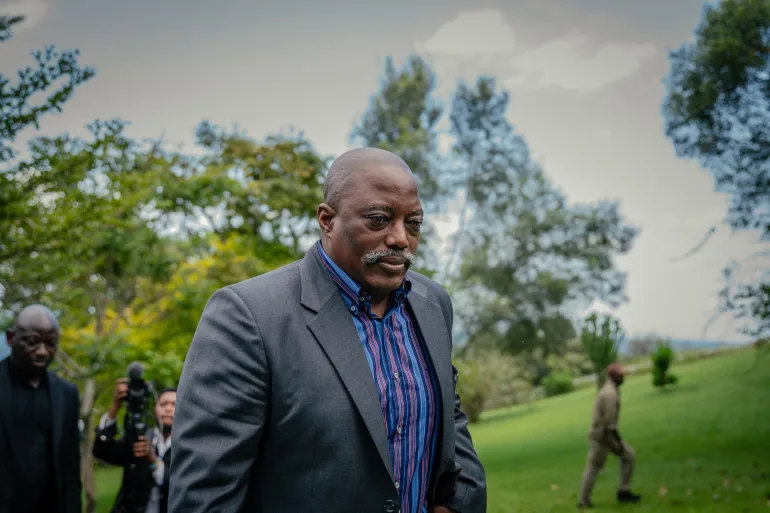A military prosecutor in the Democratic Republic of Congo (DRC) has demanded the death penalty for former president Joseph Kabila, who is being tried in absentia on charges of treason and war crimes.
General Lucien Rene Likulia told judges on Friday that Kabila, 53, bore “criminal responsibility” for atrocities committed by the Rwanda-backed M23 rebel group in eastern Congo. The former leader is accused of plotting to overthrow President Félix Tshisekedi, organizing an insurrection, and coordinating with Rwanda to destabilize the country.
According to the prosecution, Kabila conspired with Corneille Nangaa, the former head of the electoral commission, who last year announced the creation of the Congo River Alliance (AFC), a coalition of armed groups including M23. The charge sheet describes Kabila as one of the initiators of the AFC, linking him to killings, torture, and rape committed during M23’s offensives in North and South Kivu provinces.
M23 fighters captured the key city of Goma in January before a ceasefire was brokered in July. Prosecutors claim Kabila personally traveled to Goma in May, meeting local leaders in the presence of M23 spokesman Lawrence Kanyuka, which they argue proves his involvement.
Kabila, who has been outside the DRC for two years, has dismissed the proceedings as political persecution, calling the courts “an instrument of oppression.” His party, the People’s Party for Reconstruction and Democracy (PPRD), has echoed that view. “It’s a political trial, the regime is trying to hide its diplomatic and military failures,” said Ferdinand Kambere, the party’s deputy general secretary.
Despite Rwanda’s denial of support, UN experts maintain that Kigali’s military has played a “critical” role in M23’s resurgence since 2021. Tshisekedi has openly accused Kabila of masterminding the rebellion, arguing the former president still wields influence behind the scenes.
Kabila ruled the DRC between 2001 and 2019 after the assassination of his father, Laurent Kabila. Though he stepped down, he continues to be a polarizing figure, frequently criticizing Tshisekedi’s government as dictatorial.
The DRC reinstated the death penalty last year after a long moratorium, though no executions have yet been carried out.

